Abvida M 50/1000mg Tablets
$18.00 – $36.00Price range: $18.00 through $36.00
Abvida M 50/1000 is used to treat Type 2 Diabetes. It contains Vildagliptin and Metformin, which work together to lower blood sugar levels by improving insulin action and reducing glucose production in the liver.
| Pack Size | Price | Price / Unit | Quantity | |
|---|---|---|---|---|
| 60 Tablets | $18.00 | $0.30/ unit | ||
| 120 Tablets | $30.00 | $0.25/ unit | ||
| 180 Tablets | $36.00 | $0.20/ unit |
Looking for bulk / B2B pricing? | Send Inquiry |

| SKU | 11223 |
| Manufacturer | Abbott Healthcare Pvt Ltd |
| Categories | Diabetes |
| Delivery Time | 10 - 14 Working Days |
| Strength | 50mg + 1000mg |
Introduction to Abvida M 50/1000mg Tablets
Abvida M 50/1000mg Tablet is a prescription medication used to manage Type 2 Diabetes Mellitus. It combines two active ingredients: Vildagliptin (50 mg) and Metformin (1000 mg). This combination helps control high blood sugar levels in adults whose diabetes is not well managed by diet and exercise alone.
Vildagliptin works by inhibiting the enzyme DPP-4, which increases levels of incretin hormones. These hormones stimulate insulin release after meals and decrease the liver’s sugar production. Metformin complements this by reducing glucose production in the liver and improving insulin sensitivity in the body, helping muscles absorb glucose more effectively.
Together, these two medicines provide a dual approach to managing blood glucose levels. Abvida M 50/1000mg is usually taken along with a balanced diet and regular exercise to achieve the best results. It is not suitable for treating type 1 diabetes or diabetic ketoacidosis.
Uses of Abvida M 50/1000mg
- Management of Type 2 Diabetes Mellitus
- Reduction of Fasting and Postprandial Blood Glucose Levels
- Prevention of Diabetes-Related Complications
How Does Abvida M 50/1000mg Works?
Abvida M 50/1000mg combines two medicines—Vildagliptin and Metformin—that work together to lower blood sugar in people with type 2 diabetes. Vildagliptin is a DPP-4 inhibitor that increases the levels of incretin hormones, which help the pancreas release more insulin after meals and reduce the amount of sugar produced by the liver. This helps control blood sugar spikes after eating.
Metformin works by decreasing glucose production in the liver and improving the body’s sensitivity to insulin, allowing muscles to use sugar more effectively for energy. Together, these actions help maintain steady blood sugar levels throughout the day, supporting overall diabetes management when combined with diet and exercise.
Side Effects of Abvida M 50/1000
Common Side Effects
- Nausea
- Diarrhea
- Stomach upset or abdominal discomfort
- Headache
- Cold or upper respiratory tract infections
- Dizziness
- Gas or bloating
- Weakness or fatigue
- Joint pain (arthralgia)
Serious Side Effects
- Lactic Acidosis
- Severe Allergic Reactions
- Pancreatitis
- Severe Hypoglycemia
- Kidney Problems
Dosage of Abvida M 50/1000 mg
- Consult Healthcare Professional: Always consult a qualified healthcare professional, such as your doctor or pharmacist, for accurate dosage instructions.
- Follow Prescribing Physician’s Instructions: Take the medication exactly as prescribed by your doctor. Do not alter the dosage or stop the medication without their guidance.
- Dosage Strength: Clarify the dosage strength of “Abvida M 50/1000” with your healthcare provider to ensure you take the correct formulation.
- Timing: Understand the recommended frequency and timing of dosages, whether it should be taken with or without food, and if there are any specific instructions for missed doses.
Other Dosages of Abvida
How to Manage Side Effects?
- Consult Healthcare Professional
- Don’t Stop Abruptly
- Inform Your Doctor
- Adjust Dosage or Timing
- Stay Hydrated
- Avoid Alcohol and Other Substances
- Monitor Your Symptoms
Warnings & Precautions
1. Not for Type 1 Diabetes or Diabetic Ketoacidosis
- Only use for type 2 diabetes; not suitable for type 1 or ketoacidosis.
2. Kidney Function Monitoring Required
- Use cautiously if kidney problems exist; metformin can cause lactic acidosis in impaired kidneys.
3. Liver Function Caution
- Avoid if you have severe liver disease; monitor liver enzymes if needed.
4. Avoid Excessive Alcohol Consumption
- Alcohol increases risk of lactic acidosis and low blood sugar.
5. Use with Caution in Elderly
- Increased risk of dehydration, kidney issues, and side effects.
6. Inform Doctor About Other Medications
- Some drugs can interact, altering effectiveness or increasing side effects.
7. Maintain Proper Hydration
- Prevent dehydration to avoid kidney strain and side effects.
Safety Advice
- Consult Healthcare Professional: Always consult a qualified healthcare professional, such as your doctor or pharmacist, before starting or stopping any medication.
- Read the Instructions: Carefully read and follow the instructions provided by the prescribing physician or included in the product’s packaging.
- Dosage: Take the prescribed dosage as directed by your healthcare provider.
- Allergies: Inform your healthcare provider of any known allergies to medications or substances.
- Medical History: Disclose your complete medical history, including any pre-existing conditions or ongoing treatments, to your healthcare provider.
FAQs – Frequently Asked Questions
1. Who should avoid taking Abvida M?
People with type 1 diabetes, severe kidney or liver disease, or a history of lactic acidosis should avoid it.
2. Can Abvida M 50/1000mg be used in elderly patients?
Abvida M 50/1000mg Tablets should be used with caution in elderly patients above 65 years of age, especially in patients with impaired kidney function. Your doctor will adjust the dose depending upon kidney function and your kidney function will be monitored regularly. Consult with your doctor before taking Abvida M 50/1000mg Tablets.
3. Is Abvida M 50/1000mg safe to use in patients with heart problems?
Abvida M 50/1000mg Tablets is not recommended in patients who recently had heart attack or heart failure or any signs of heart problems such as serious problems with blood circulation or difficulty in breathing. Consult your doctor before taking Abvida M 50/1000mg Tablets.en.
| Pack Size | 180 Tablets, 120 Tablets, 60 Tablets |
|---|---|
| Price/Unit | $0.20/unit, $0.25/unit, $0.30/unit |
2 reviews for Abvida M 50/1000mg Tablets
Add a review Cancel reply
Related Products
No related Products Found

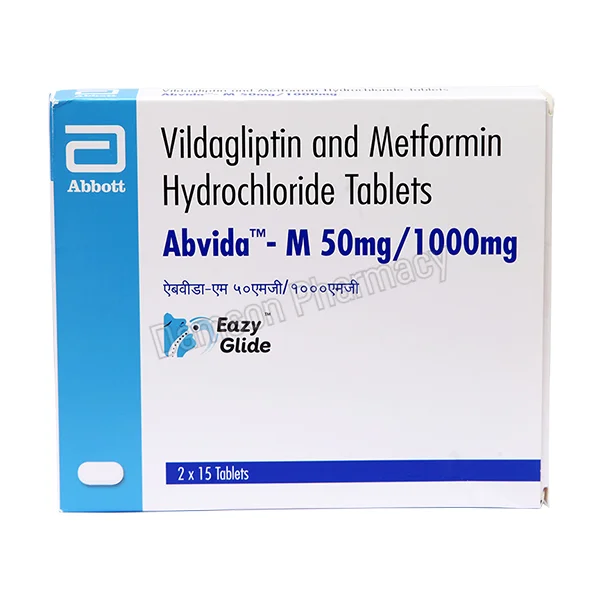
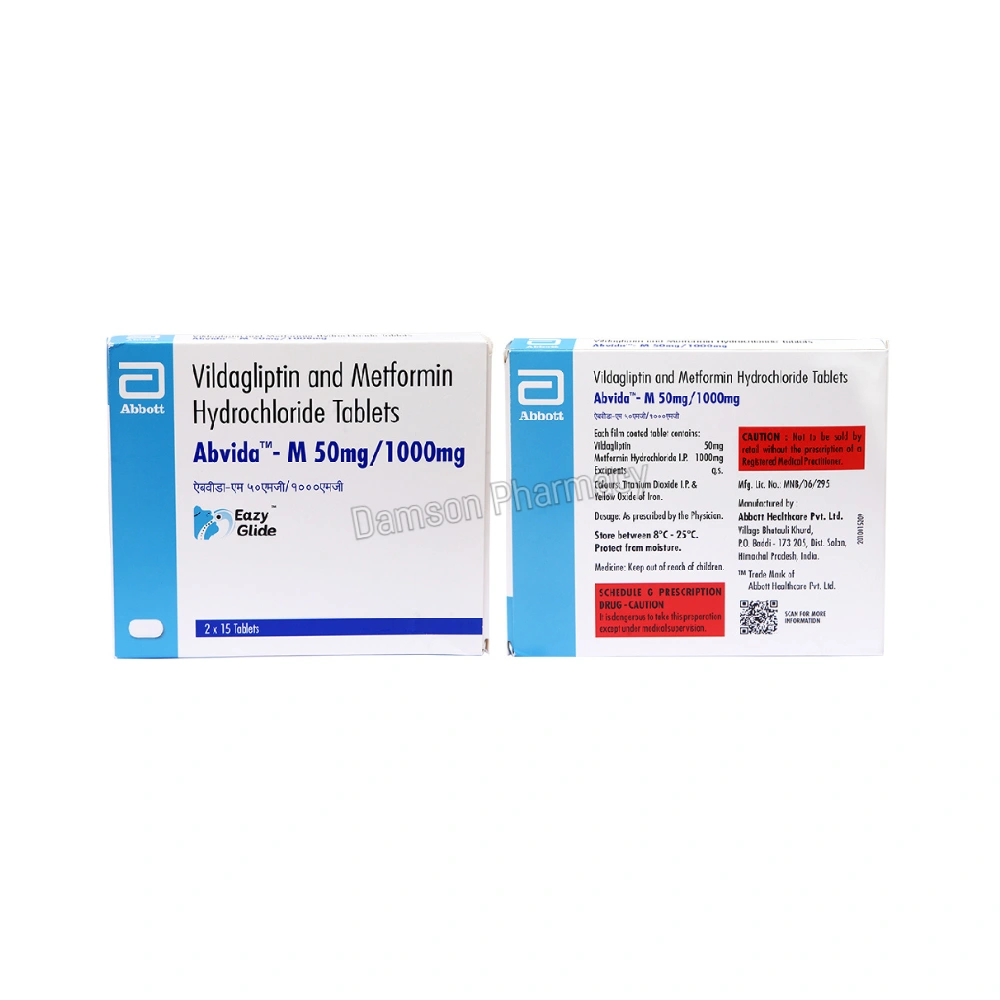
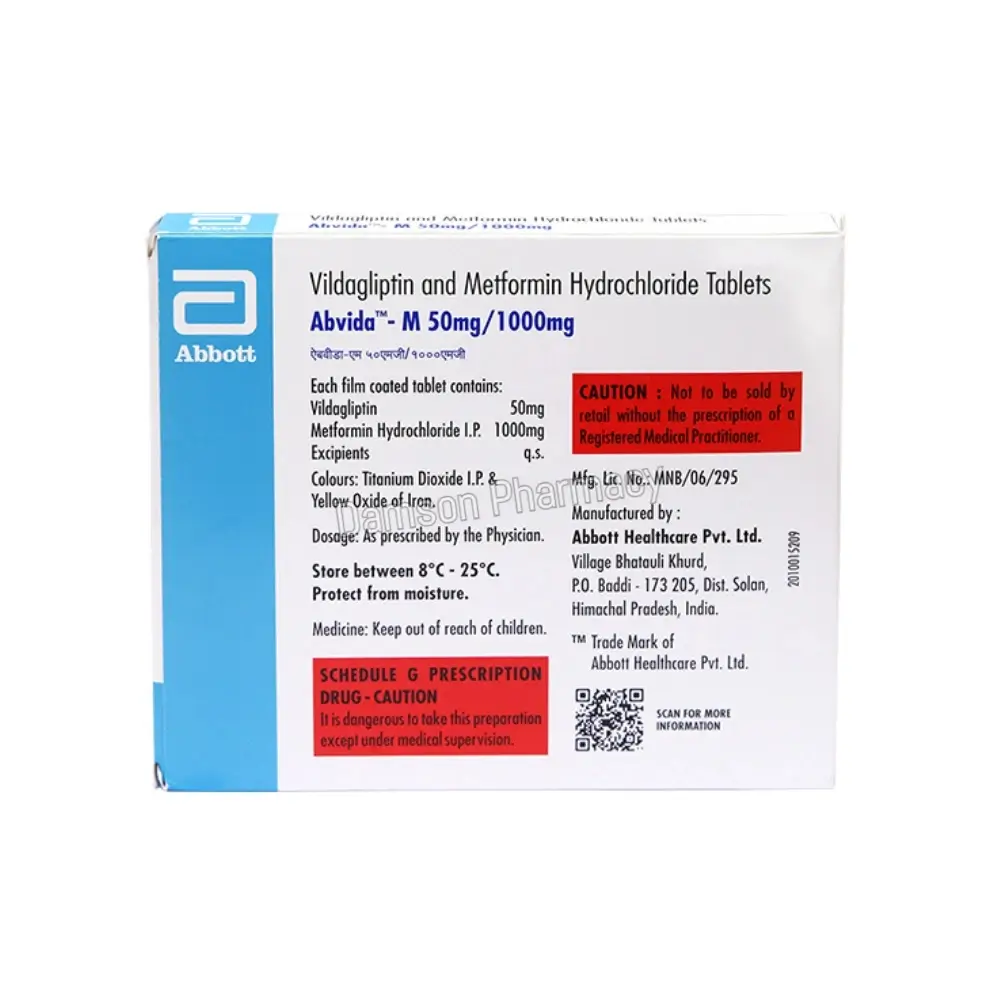
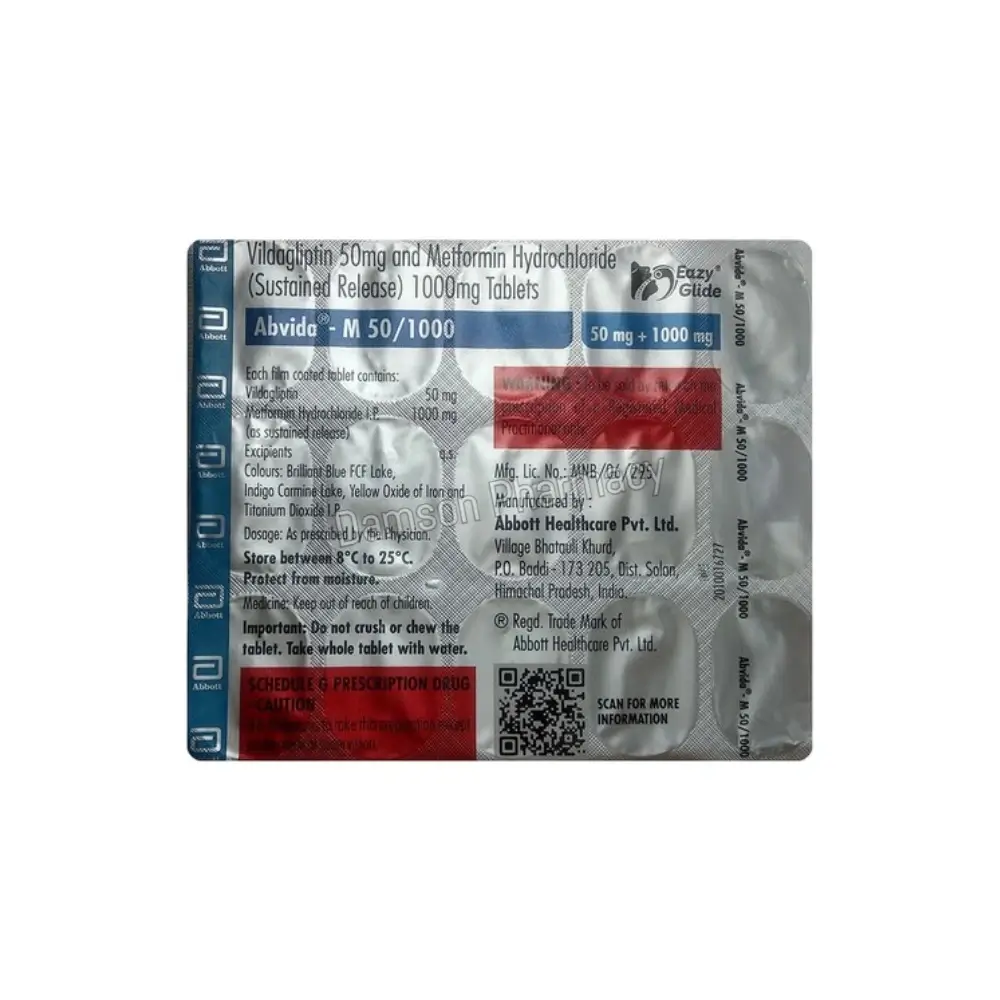
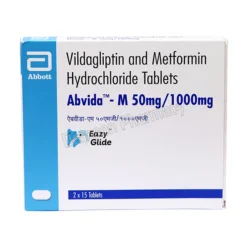

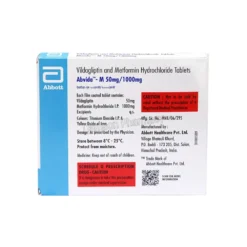
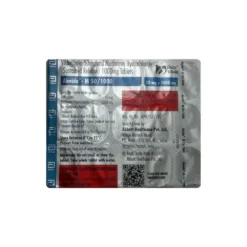
Niles –
Fast, factual information. Kind and helpful
Griffin Shaw –
The payment process felt secure and reliable. Privacy is clearly a top priority for them.